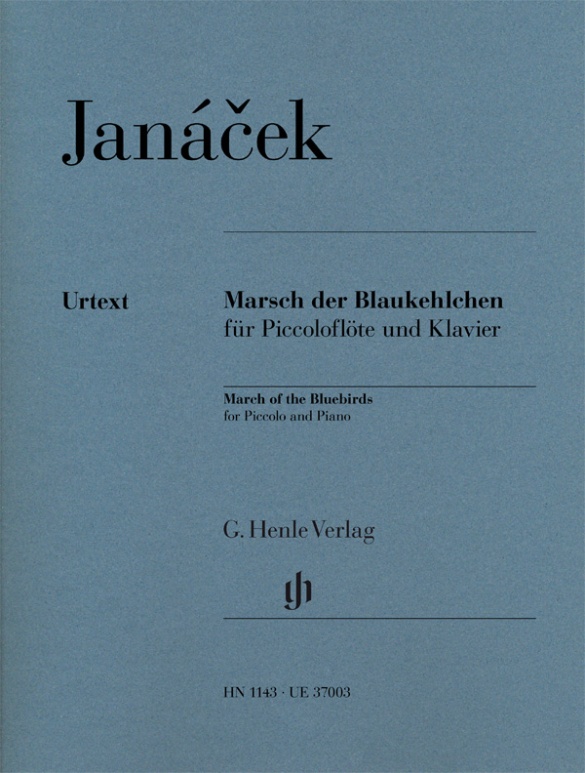

Leos Janácek
March of the Bluebirds for Piccolo and Piano
The little march composed in 1924 forms the nucleus of the suite for wind instruments Mládí (HN 1093/7093), in which the jaunty flute theme weaves through the 3rd movement. Incidentally, the “bluebirds” do not refer to birds but to the light blue robes worn by the choristers at the monastery in Brno, which Janácek entered at the age of eleven. Almost 60 years later during a visit to Potsdam he remembered the Prussian troops’ invasion of Brno and, with this in mind, wrote a chamber music miniature with a military element. Our Janácek edition by Jirí Zahrádka, a specialist on the life and work of the great Czech composer, contains top-quality Urtext as well as detailed information on the work’s genesis and transmission.
Content/Details
About the Composer
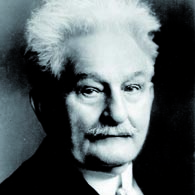
Leos Janácek
He is regarded today as one of the classic opera composers of the twentieth century, whose oeuvre renounces the opera of the nineteenth century to feature music-dramatic realism. He was well known earlier for his choir, chamber, and orchestral works and his collections of folk songs.
| 1854 | Born in Hukvaldy (Moravia) on July 3, the son of a teacher and cantor. |
| 1866 | Chorister at the Augustinian abbey in Brno; music lessons with Pavel Křížkovský, attends the German primary school. |
| 1869–72 | Education at the Slavic Teacher’s Institute, then teacher and choir director in Brno. |
| 1874–75 | Studies at the Prague organ school. |
| 1877 | Suite for Strings. |
| 1879–80 | Studies at the Leipzig Conservatory and in 1880 at the Vienna Conservatory, composes instrumental works. |
| 1881 | Founds an organ school in Brno, which he directs himself. |
| 1884–88 | Reviews of opera performances at the newly opened theater in Brno. |
| 1887 | Beginning of his first operatic composition, “Šárka.” |
| 1890/1899/1901 | Publication of folksong collections. |
| 1904 | Premiere in Brno of the opera “Jenůfa,” which brings him great acclaim and is his most important opera; it treats the problem of the freedom of the individual within the confines of a village community and is regarded as a work of realism. |
| after 1905 | He primarily composes operas drawn from the model of “Jenůfa”: in 1903–07 “Osud” (Fate), “The Excursions of Mr. Brouček” (1908–1920), “Káťa Kabanová” (1920–1921), “The Cunning Little Vixen” (1922–1924), “The Makropulos Case” (1923–1925), “From the House of the Dead” (1927/28) in Brno. |
| 1926 | Sinfonietta; Concertino for piano, two violins, viola, clarinet, French horn, and bassoon; sketches for the violin concerto “The Wandering of a Poor Soul.” |
| 1928 | Death in Moravská Ostrava (Moravian Ostrava) on August 12. |
About the Authors

Klaus Schilde (Fingering)
Prof. Klaus Schilde, born in 1926, spent his childhood in Dresden. There he was greatly influenced by Walter Engel, who taught him the piano (Kodaly method), composition and violin. From 1946–1948 he studied at the music conservatory in Leipzig with Hugo Steurer. After moving to the west in 1952 he studied with Walter Gieseking and Edwin Fischer, as well as with Marguerite Long, Lucette Descaves and Nadia Boulanger in Paris.
Schilde won numerous prizes. From 1947 onwards he gave concerts as a soloist and chamber musician on almost every single continent with renowned orchestras. He taught at the music conservatories in East Berlin Detmold, West Berlin, Munich, Tokyo (Geidai) and Weimar. From 1988–1991 he was President of the Staatliche Hochschule für Musik und Theater in Munich, where he also taught for decades as a professor. There are numerous radio and television broadcasts with Klaus Schilde as well as CD recordings. Schilde has contributed fingerings to almost 100 Henle Urtext editions.
Prof. Klaus Schilde passed away on 10 December, 2020.
Product Safety Informations (GPSR)

G. Henle Verlag
Here you can find the information about the manufacturer of the product.G. Henle Verlag e.K.
Forstenrieder Allee 122
81476 München
Germany
info@henle.de
www.henle.com
Das Stück eignet sich deshalb z.B. für den Piccolo-Unterricht an den Hochschulen und könnte so eine größere Verbreitung erreichen. Dafür bietet die neue Ausgabe durch die sorgfältige Revision und die bewährt hohe grafische Qualität des Henle-Verlages die besten Voraussetzungen.
Tibia, 2017recommendations
autogenerated_cross_selling
Further editions of this title
Further editions of this title


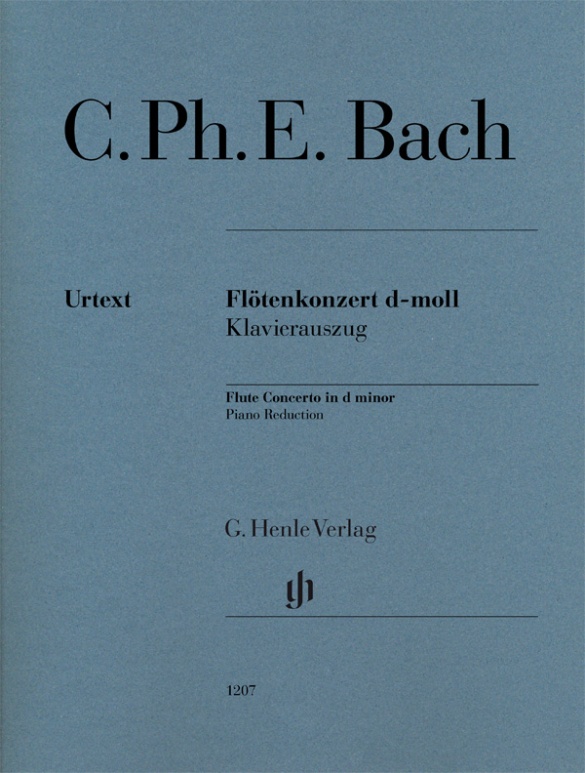

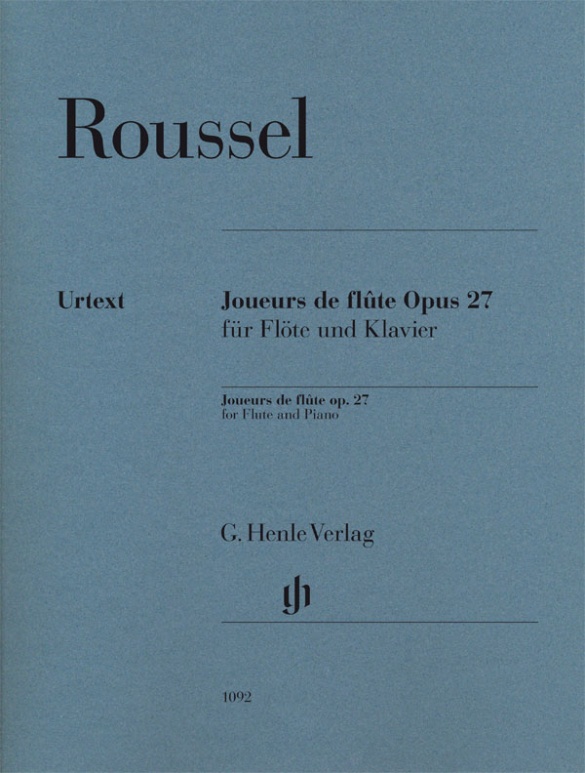
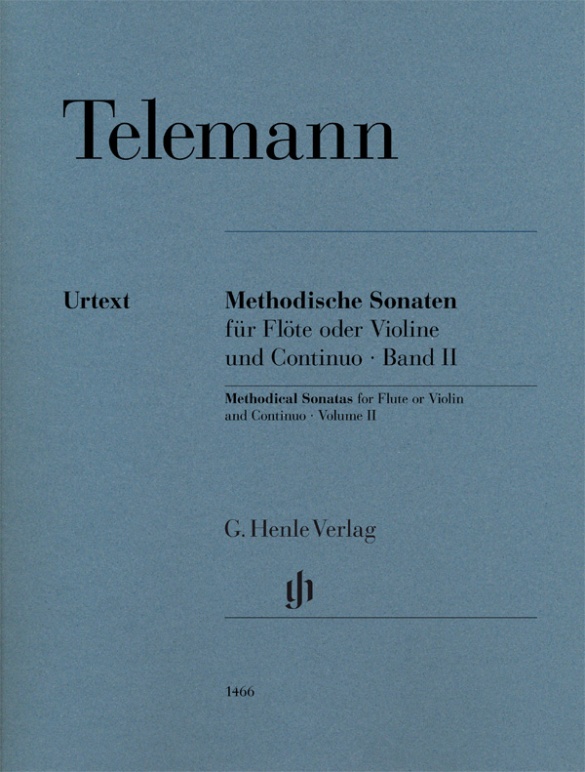
Detailed preface and critical commentary available free-of-charge (not available in the printed editions)